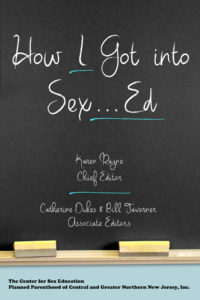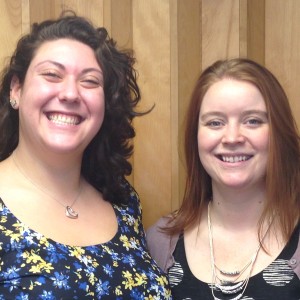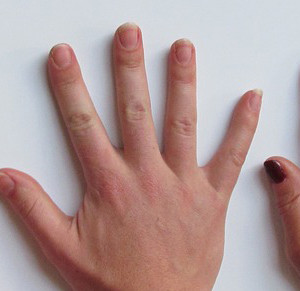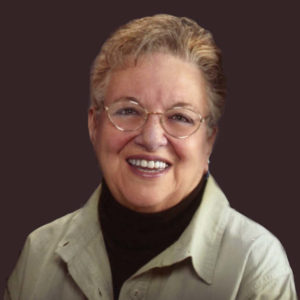We are running excerpts from How I Got Into Sex…Ed. Get a free copy of the ebook here. Order the print book here.
Lauren Barineau
How I Got Into Sex…Ed
Growing up, my family dynamic was one of open dialogue, which sometimes included typically taboo subjects such as sex. One specific discussion that I believe directly shaped my understanding of sexuality comes to mind as having led me to the field of sexual health.
My adolescent brother and I were trapped in the car on a family road trip, and my mom sensed an opportunity. She said, “You know, your dad and I really hope that when you’re older and in a healthy relationship, you have good sex.” We both groaned and rolled our eyes; this wasn’t the first time my parents had initiated conversations to ask our opinions and answer questions about sex. But this time, the message was clearly different. This conversation wasn’t just about puberty or the meaning of slang words, but a suggestion, an expectation even, that sex was supposed to be good.
Knowing we couldn’t escape the car, my mom went on to explain that she hoped my brother and I would choose to wait until after high school to have sex because she felt that would give us the time to discover who we were as individuals, and as a result, find partners with whom we could develop strong relationships. It was important to my parents that we were educated about sex and that we considered all sexual health risks and were thoughtful about physical and emotional consequences. She emphasized that we should seek relationships in which we were able to make choices about sex without being pressured. “When you find those relationships,” she continued, “I hope you feel comfortable and safe enough to communicate with your partner about sex, which will eventually lead to good sex. Sex is a really important and fun part of a relationship.” Although we were a bit embarrassed at the time, my brother and I listened quietly and nodded along in the backseat. As I grew into adulthood, it became a conversation that has stayed with me.
It wasn’t until I was in college that I realized my experience with my parents was unique. I just assumed that everyone grew up in a family like mine that openly discussed body parts and changes, talked about healthy relationships and what I should expect from a partner, and asked and answered questions about sex and sexuality. I was genuinely surprised to learn that many of my peers never, ever talked with their parents about sex, and if they did, their parents wouldn’t have acknowledged that sex was, dare I say, enjoyable! I began to realize how our cultural nervousness about sex was preventing children and teens from hearing any positive messages about sex and sexuality from some of the most trusted adults in their lives.
My choice to enter the field of sexual health education was a direct result of my parents’ honesty and their message that sex is a healthy part of mutually respectful and caring relationships and that with the right partner, sex could and should feel good. My parents purposefully shared their values around sexual activity and their expectations of healthy relationships so that I could develop an understanding of the context around sexuality, not just the mechanics of anatomy. I can see the impact of my parents’ choice to communicate using a sex positive approach reflected in my comfort when talking about healthy sexual decision making both professionally and personally. At a sexual health curriculum training, I was once asked how I became so comfortable talking about “this stuff” with strangers. When I gave the question some thought, I realized that my ease came from talking about sex early, often, and openly with trusted adults in my life.
I’m committed to promoting the value of using a sex-positive approach in family communication about sexuality. If children and teens begin to hear messages about sex and relationships in a way that acknowledges that they are healthy parts of personhood, they will be more comfortable talking about sex and can better avoid the consequences of risky sexual behavior. It is essential that these messages not only come from families, but also from schools, houses of worship, and other youth-serving agencies so that healthy and age-appropriate messages about sex are reinforced in every aspect of our communities.
I’ll continue to work in the field of sexual health to train parents, families, teachers, and other trusted adults in ways to effectively initiate conversations so that all young people have opportunities to receive healthy, positive messages about sex. My hope is that this work will spark families and teens to ask one question, begin one conversation, or share one value about sex with each other as the start of a journey toward open communication about sexuality.
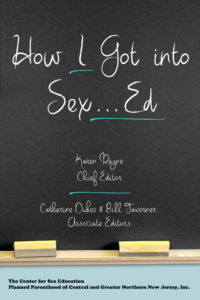
Want to read other great stories? Get a free copy of the ebook here. Order the print book here.
“How I Got Into Sex…Ed is a treasure! If you’ve ever wondered if this path was right for you or what it feels like to be a sex educator or how to get the right kinds of education, training, or opportunities to work as a sexuality education professional, this book is for you!”
Debby Herbenick, PhD, MPH
Director, The Center for Sexual Health Promotion
Indiana University


